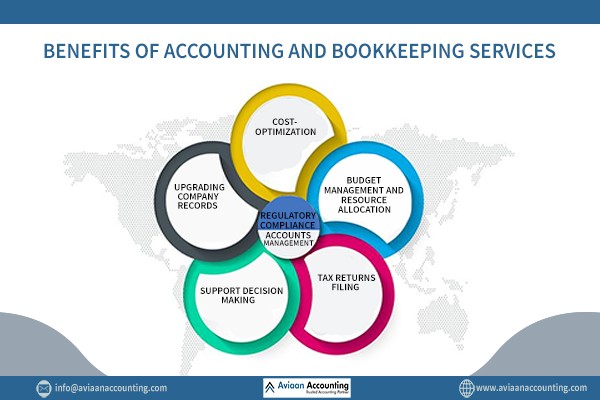Dubai, a vibrant hub for global trade and innovation, attracts entrepreneurs and businesses from every corner of the world. However, establishing a foothold in this dynamic market requires a deep understanding of local regulations and meticulous financial management. This is where Bookkeeping and Accounting Firms in Dubai play a pivotal role, offering invaluable services that propel your business towards sustained success.
Bookkeeping and Accounting firms in Dubai
Why Bookkeeping and Accounting Firms in Dubai UAE are Crucial for Your Success?
Why Aviaan Accounting Stands Out Among Bookkeeping and Accounting Firms in Dubai?
While numerous Bookkeeping and Accounting Firms in Dubai offer their services, Aviaan Accounting distinguishes itself through a unique combination of factors:
- Client-Centric Approach: We prioritize building strong relationships with our clients, taking the time to understand their unique needs, challenges, and aspirations. This allows us to tailor our services and provide solutions that are truly impactful.
- Highly Qualified and Experienced Team: Our team comprises certified professionals with extensive experience in various industries. We are passionate about staying up-to-date with the latest accounting practices and regulations to ensure our clients receive the most accurate and relevant advice.
- Comprehensive Service Portfolio: We offer a comprehensive range of bookkeeping, accounting, tax, and advisory services under one roof. This allows you to benefit from a single point of contact and seamless integration of services.
- Technology-Driven Solutions: We leverage cutting-edge technology to streamline our processes and enhance efficiency. Our secure cloud-based platform allows you to access your financial data anytime, anywhere, while ensuring the highest level of security.
- Commitment to Transparency and Communication: We believe in open and honest communication. We keep you informed every step of the way, providing timely updates and clear explanations, so you remain involved and empowered throughout the process.

One thing to keep in mind, though, is that irrespective of the kind of business you own, you would need to figure out a way to manage your finances, record all such transactions and analyze them. Without funds and adequate financing, there is no way that your company as a whole would be able to carry out its operations, and this means you need to hire accounting and bookkeeping services in Dubai to manage your finances. There are two ways to do this – one is to hire a full-time accountant costing you as per their qualification and experience and second is to top Outsource accounting and bookkeeping services in Dubai, of which the latter has various benefits.
Why do you need accounting and bookkeeping services in Dubai, Abu Dhabi, UAE?
Providing accounting and bookkeeping services is very technical and requires a certain level of knowledge, expertise, and experience in the related field. Because if accounting and bookkeeping services in Dubai are not managed the way they should be, it can lead the company into serious problems. Outsourcing accounting services in Dubai is the first step towards accurate and precise accounts. Bookkeeping and accounting firms in Dubai, also ensure that all industry regulations and company standards are being followed in all aspects of data recording. You need to hire one of the top bookkeeping and accounting firms in Dubai because:
- Maintain records
- Bank accounts management
- Keep the books aligned with law
- Keep you ready for tax
- Sending out Invoices
- Keeping Invoices
- Deal with foreign currency transactions
- Maintain proper cash flow
- Prepare financial statements
- Getting the books ready for the accountant
Role of Accounting Companies in Abu Dhabi, UAE
Accounting and bookkeeping companies in Dubai are responsible to maintain your books and accounts up to date and accurate through objective and transparent recording of business transactions. Moreover, Accounting and bookkeeping companies in Dubai play a vital role in enforcing accounting laws and regulations across the company. Role of best accounting companies in Dubai also include:
- Detecting any fraudulent activity
- Highlight misrepresentation in business transaction data
- Analyzing and evaluating reports
- Uncovering inefficiencies and errors
- Designing a control mechanism
- Managing financial transactions and recording them accurately
- Ensuring compliance with local financial regulations and standards
- Maintaining accurate financial records
- Providing financial data for decision-making
- Managing accounts payable and accounts receivable
- Offering financial advice and recommendations
- Tracking and reconciling bank statements
- Facilitating budgeting and cost control measures
- Preparing financial statements for stakeholders
- Managing cash flow and liquidity
- Assisting with business expansion and growth strategies
Why is Aviaan Accounting a suitable choice for outsourcing Accounting and Bookkeeping Services in Dubai?
It is quite evident that a company’s basic functioning depends largely on how its finances are managed, and for that, accounting companies are extremely important. Aviaan Accounting would be a great choice when it comes to outsourcing accounting and bookkeeping services in Dubai, and here is why:
- Cost-effective accounting and bookkeeping services: Paying an employee to do the accounting or bookkeeping in Dubai work can prove to be costly in the long run, especially if your business is new and operates on a smaller scale. By hiring our accounting and bookkeeping services in Dubai, you can cut down on such costs since you would simply be required to pay a monthly fee and would be assured of quality results on time.
- Expert Insight: Our accounting firm in Dubai is highly qualifiedand have a lot of experience in providing accounting and bookkeeping services in Dubai, which means that you can be assured of the fact that the work would be done with great accuracy, on time and also that you would have someone to advise you on matters of tax and finances, keeping you up to date with any changes with regards to the same.
- Time Flexibility: As a business owner, you have a lot of work to do and a lot to oversee, which means you do not have a lot of time to spend on accounting and bookkeeping services in Dubai which should not need a lot of your attention. Aviaan Accounting understands this, and thus offers you the possibility to schedule meetings when convenient for you, so that you can decide when and how you want your finances to be dealt with and can focus on other important work as well.
Other Reasons: Some other reasons why you should consider choosing Aviaan Accounting for accounting and bookkeeping services include professional accounting services with a skilled workforce, maximum accuracy and minimum errors, work done on time, comprehensive or in-depth reports which provide a clear idea of your company’s financial situation, etc.
Accounting Services offered by Aviaan Accounting in Abu Dhabi, UAE 2021
Accounting and Bookkeeping Services FAQs
Outsourcing accounting services have become a mainstream custom in the business world. Many business owners use it to handle all aspects of the financial department or utilize it for part-time work. Either way, by hiring an outsourced accounting firm, business owners don’t have to deal with the burdens and expenses of having in-house employees or doing it all on their own.
We take data confidentiality, copyright, and privacy seriously and ensure that any client-related information is not published, distributed, licensed, sold, or distributed to third-parties. We make our employees sign confidentiality agreements, service-level agreements, & non-disclosure agreements at the onset of every project to ensure the complete safety of our client’s data.
We accept payments through Cash, Credit Card, Cheques, and Wire transfers.
Xero, QuickBooks, Zoho Books, and Sage.
We have a highly skilled team of accountants, chartered accountants, and financial experts who can help clients with all their accounting needs.
Clients can either choose to outsource their bookkeeping entirely or just certain portions of it. Once requirements are forwarded, we will build a custom workflow and assign a team to work on their specific needs.
We will have one Certified Accountant assigned to each client. The accountant will work on accounts, understand individual processes, and be responsible for the day-to-day servicing of records.
Clients will maintain 100% control of all decisions. We provide the information and perform the specific task, but clients approve all invoices for payment and sign all cheques.
Also read out blogs on Bookkeeping firms in Dubai
- Top Bookkeeping Firms in Dubai, UAE
- Top Accounting and Bookkeeping firms in Oman
- Tips on maintaining books of accounts in Dubai
- Things to check while hiring a bookkeeping firm in UAE
- How to maximize the benefits of bookkeeping outsourcing in Dubai?
- Accounting Firms in Dubai
- Accounting for Manufacturing sector
- Accounting for Startups
- Accounting for E-commerce
- Accounting for Construction
Reference
- International Federation of Accountants – https://www.ifac.org/
- Association of Chartered Certified Accountants – https://www.accaglobal.com/middle-east/en.html
We focus on advice consulting business financials Get A Quote
Contact Us

